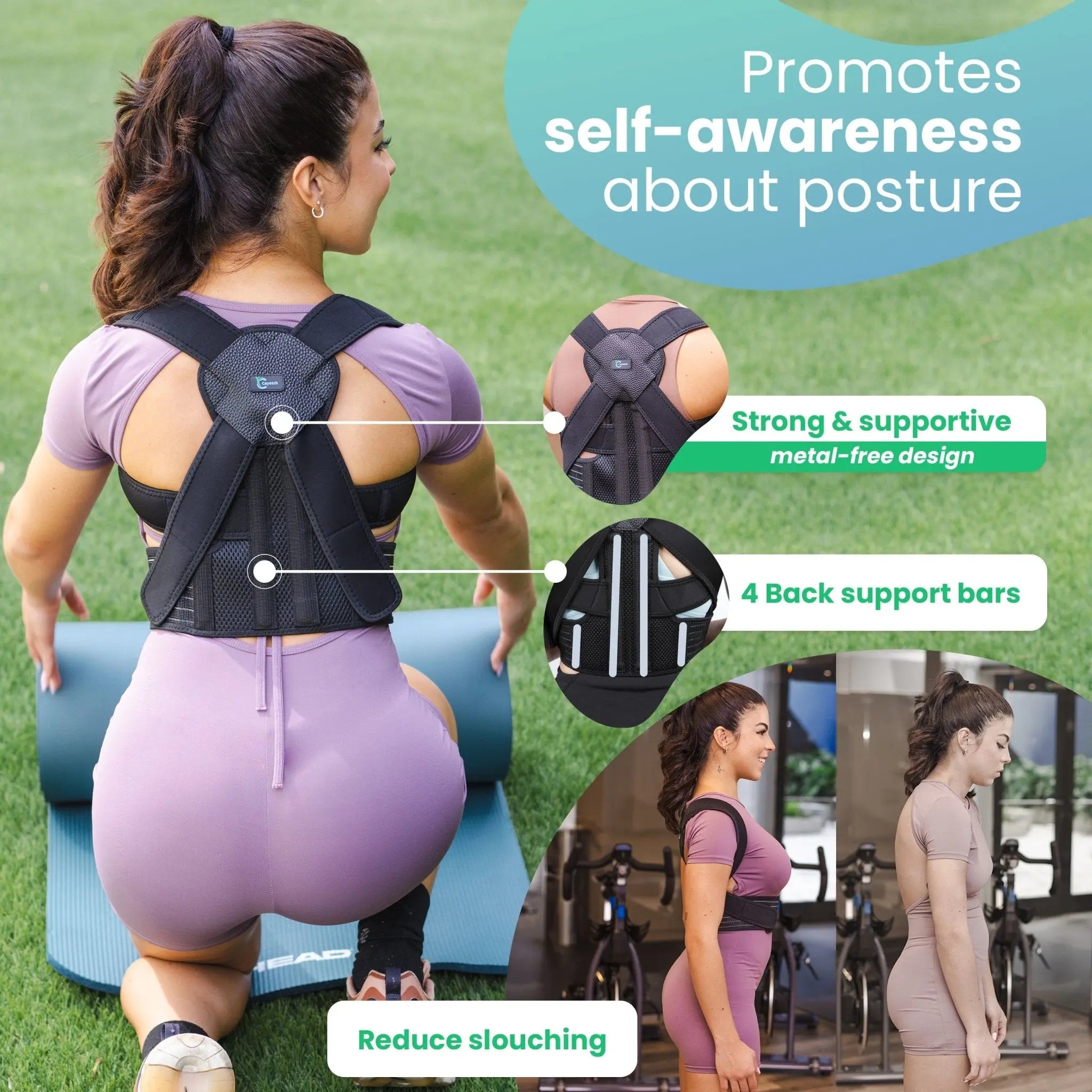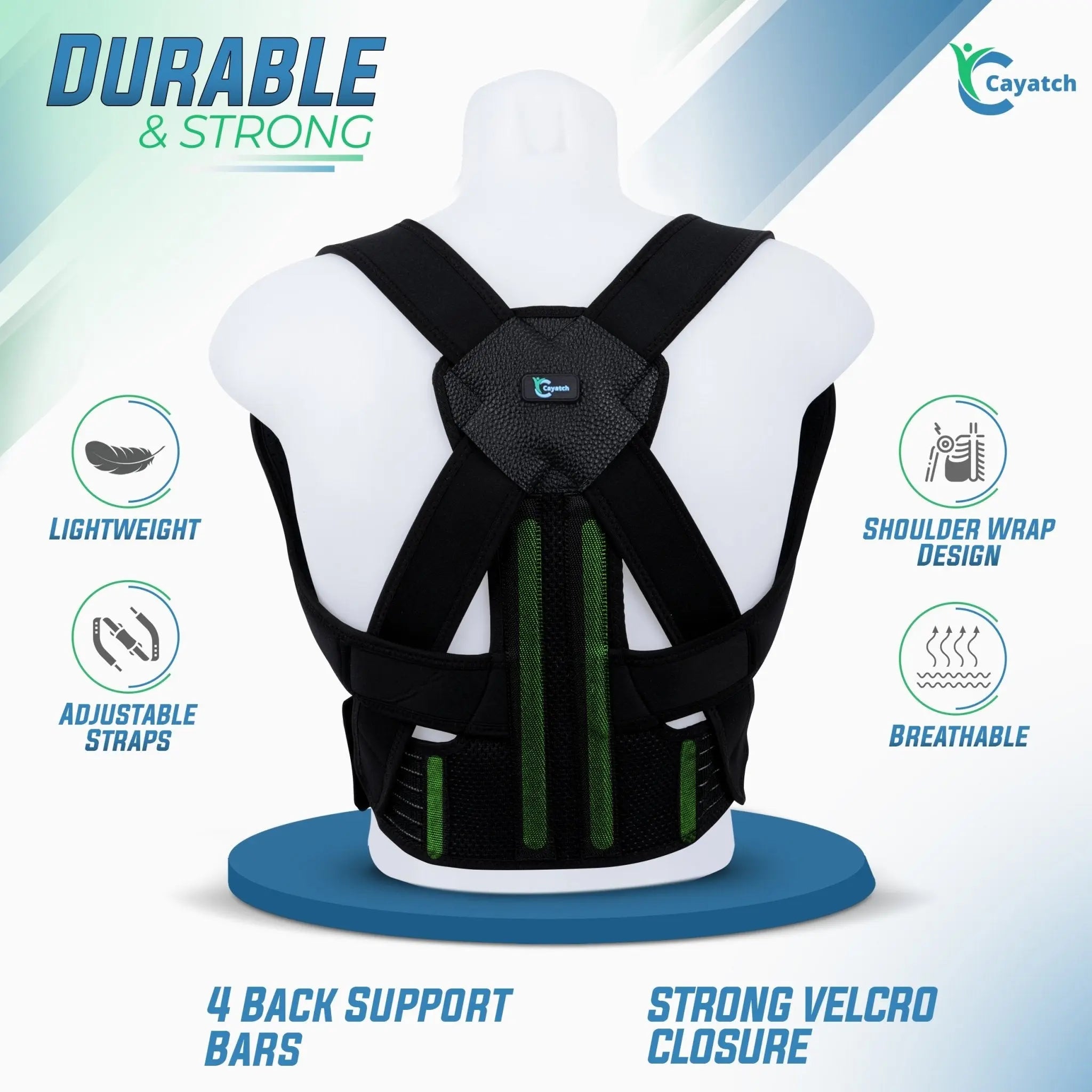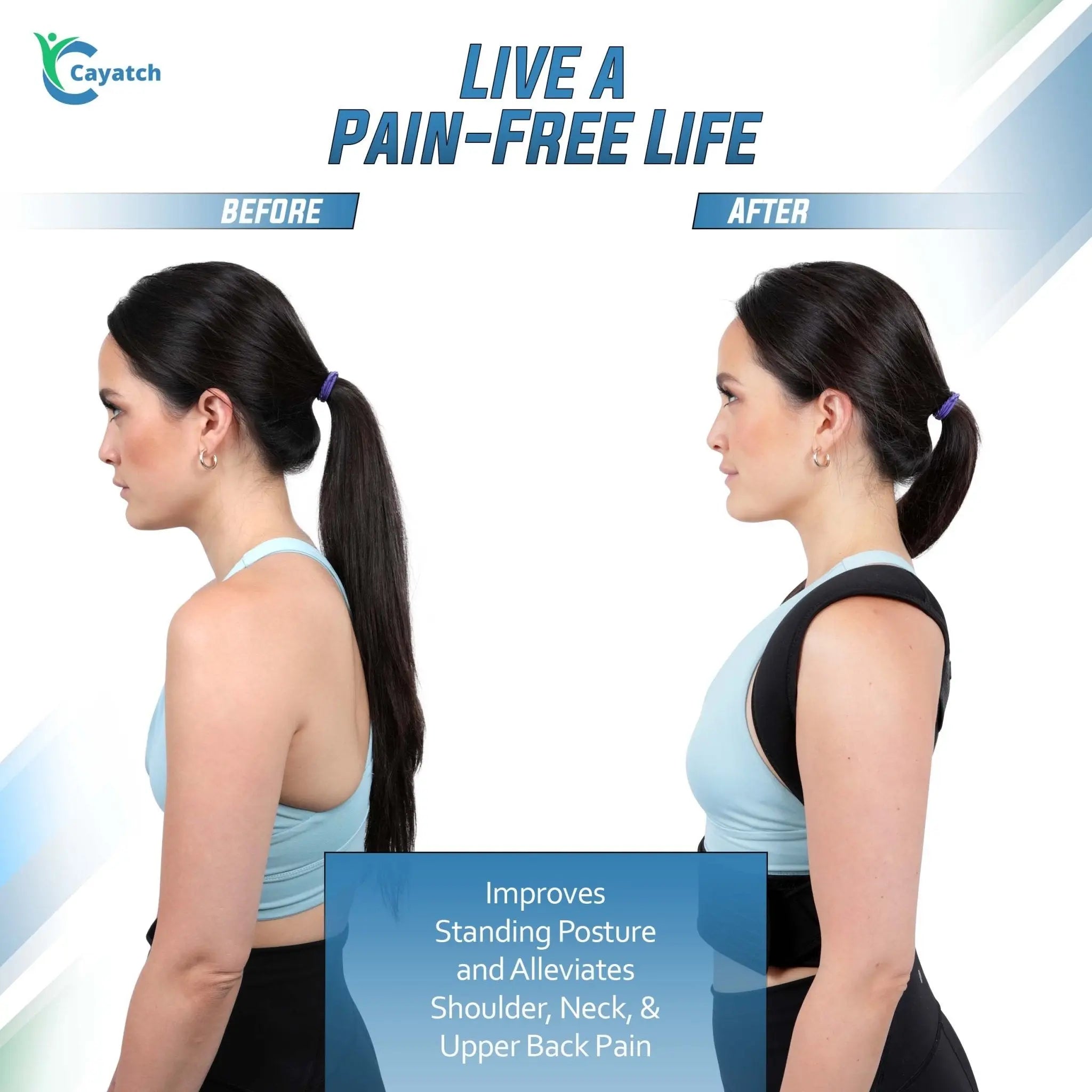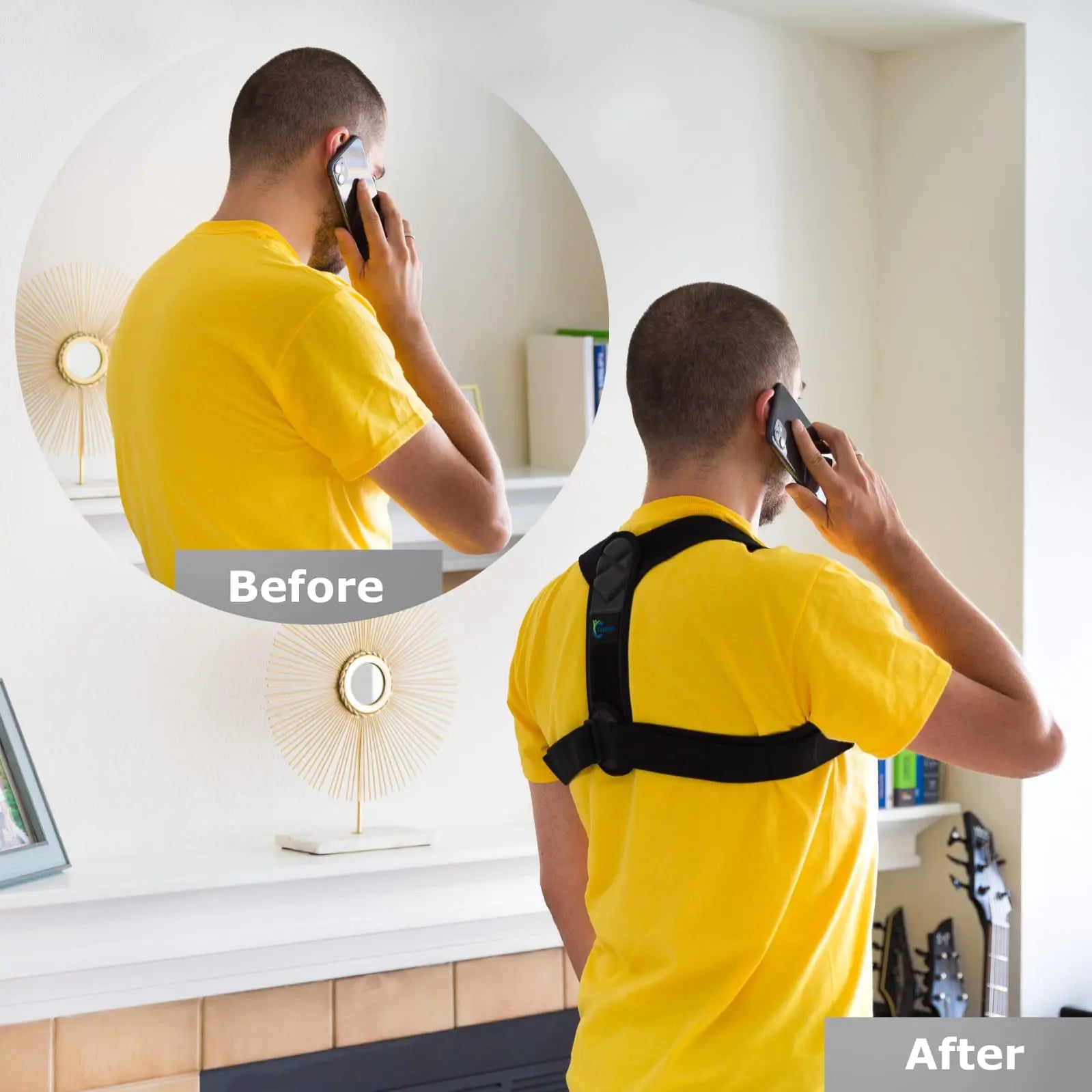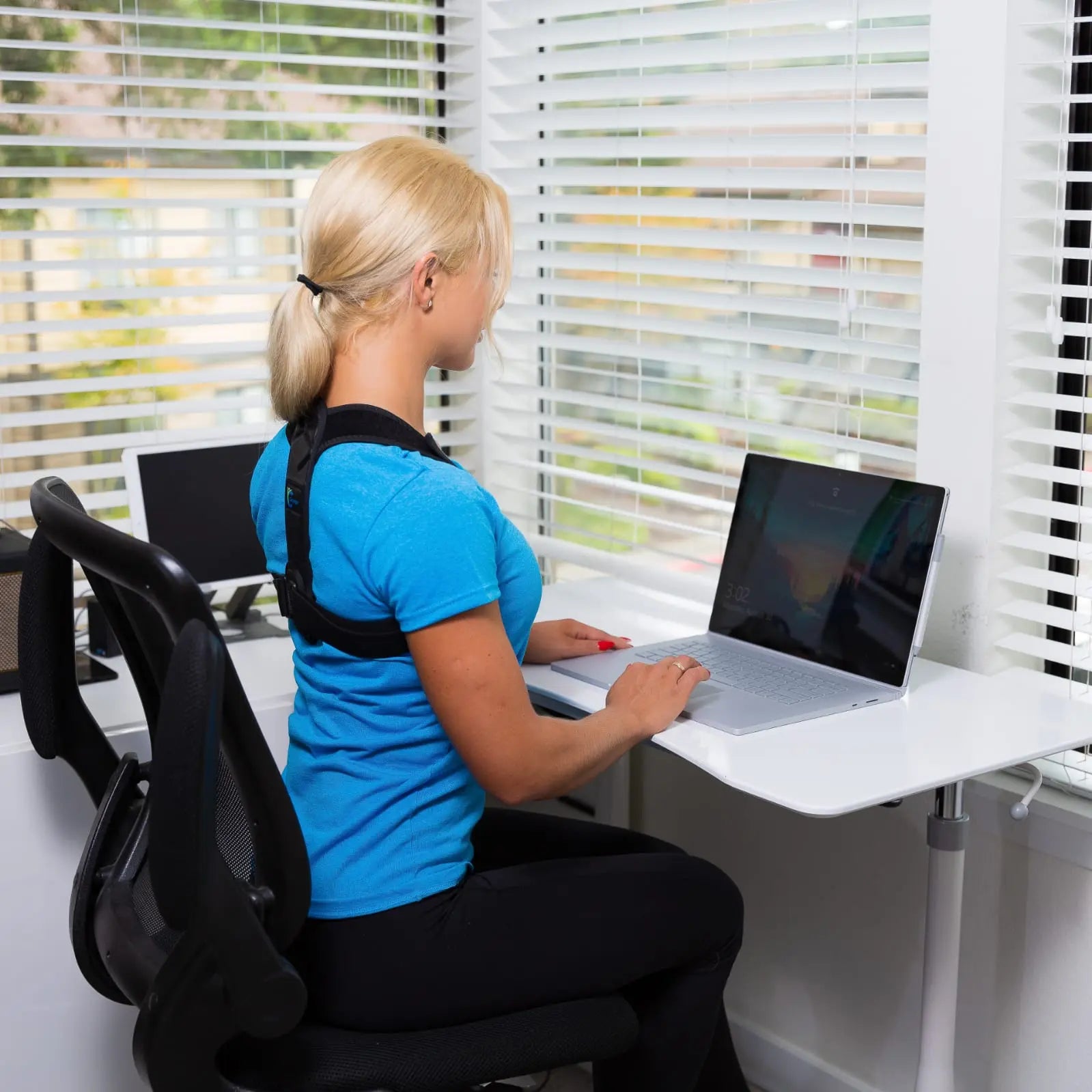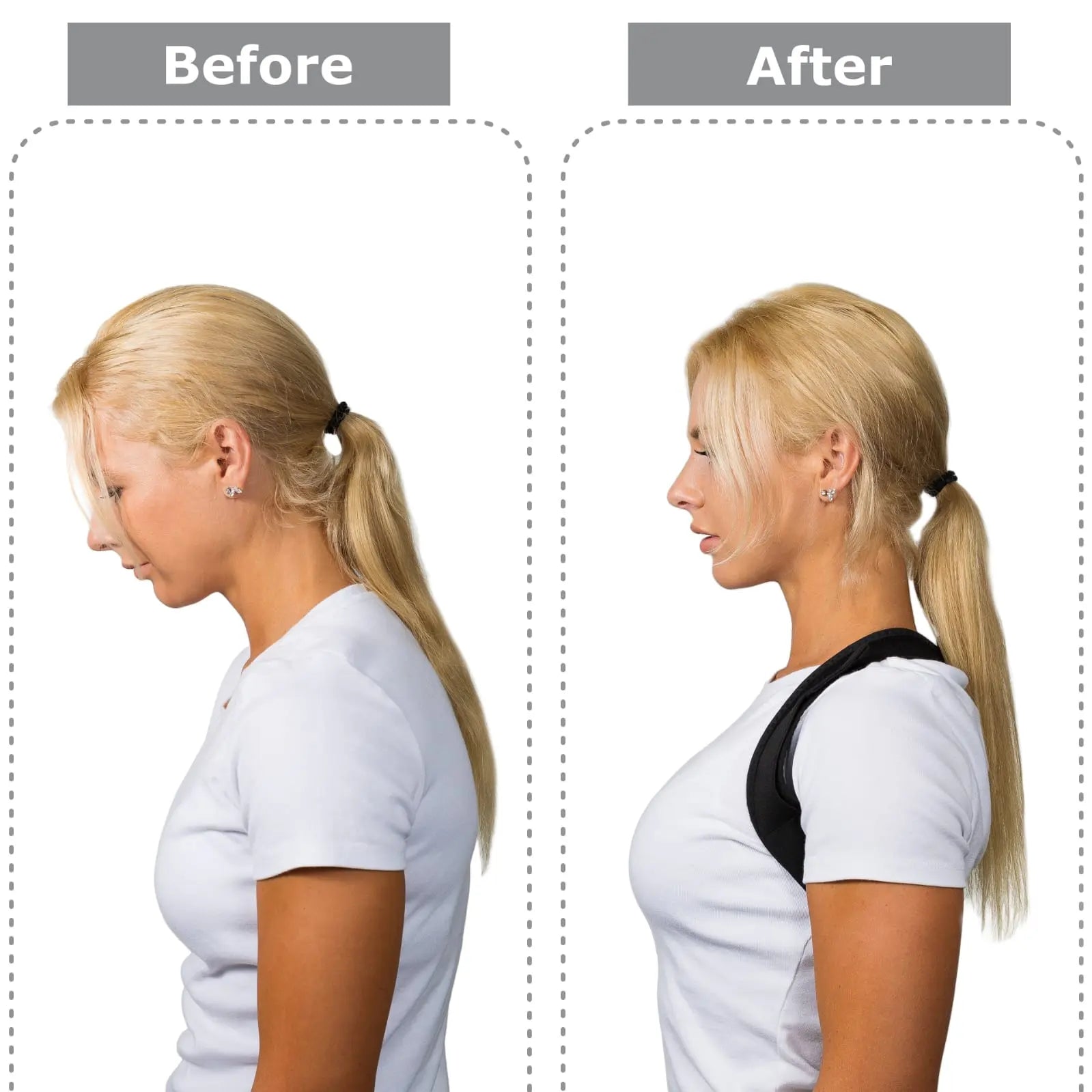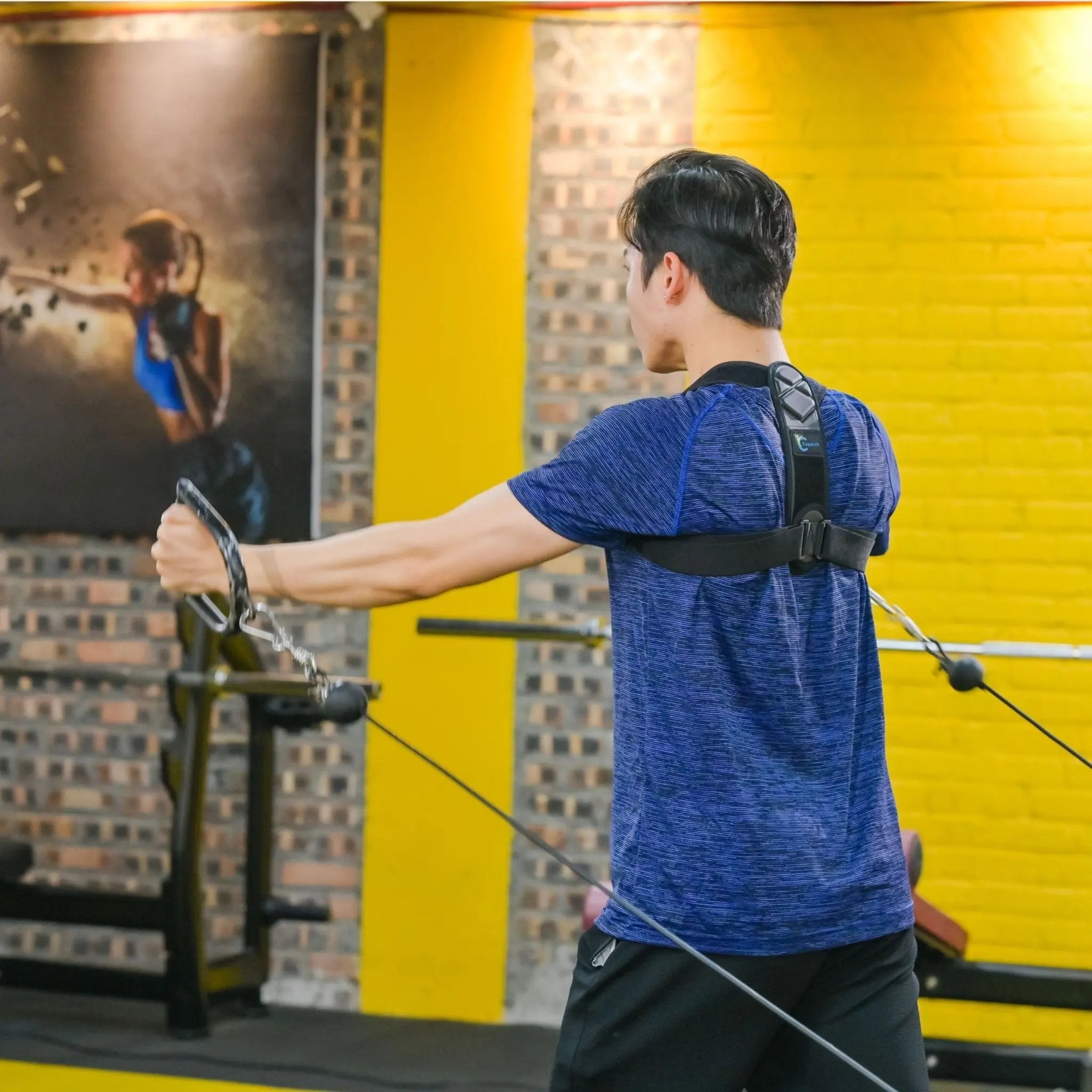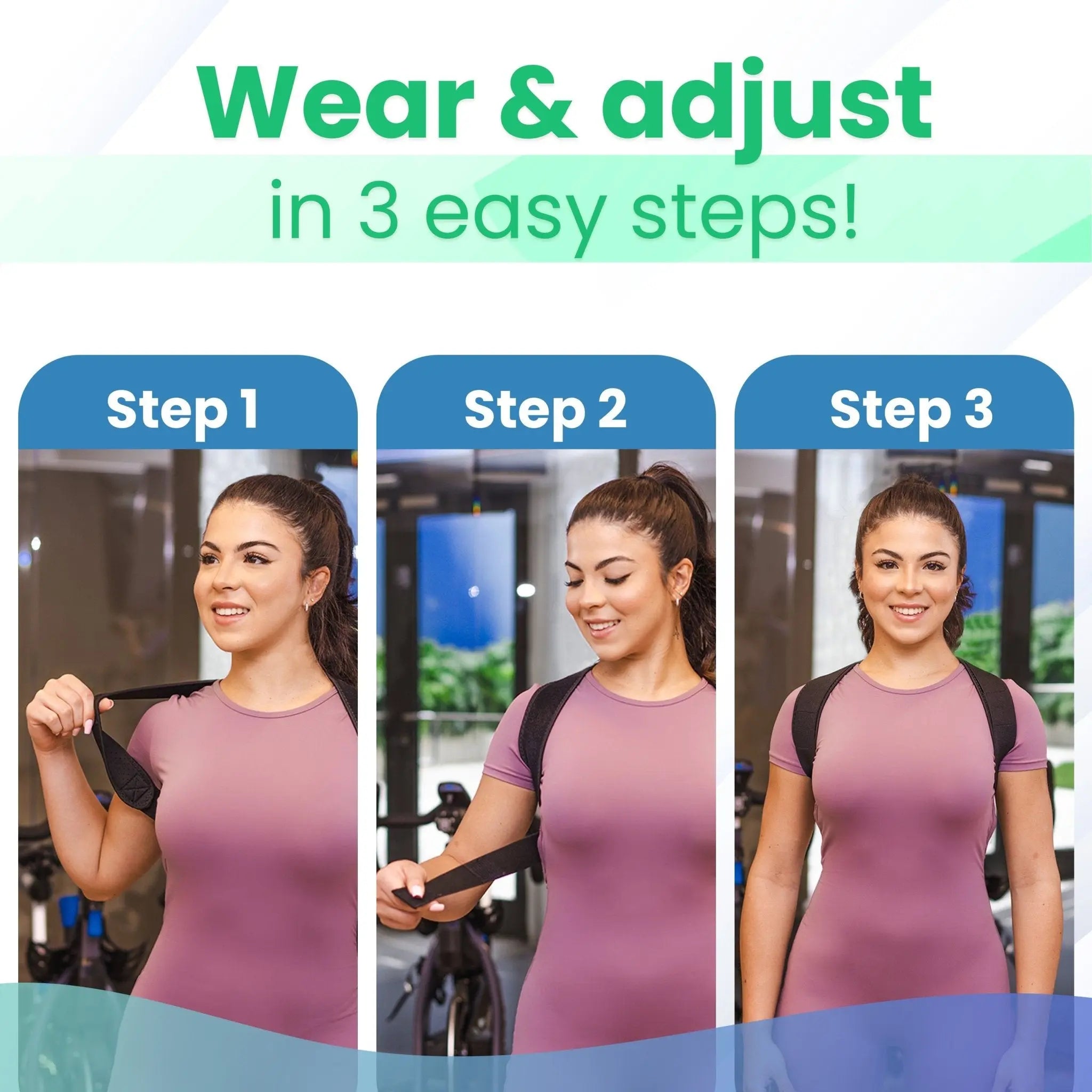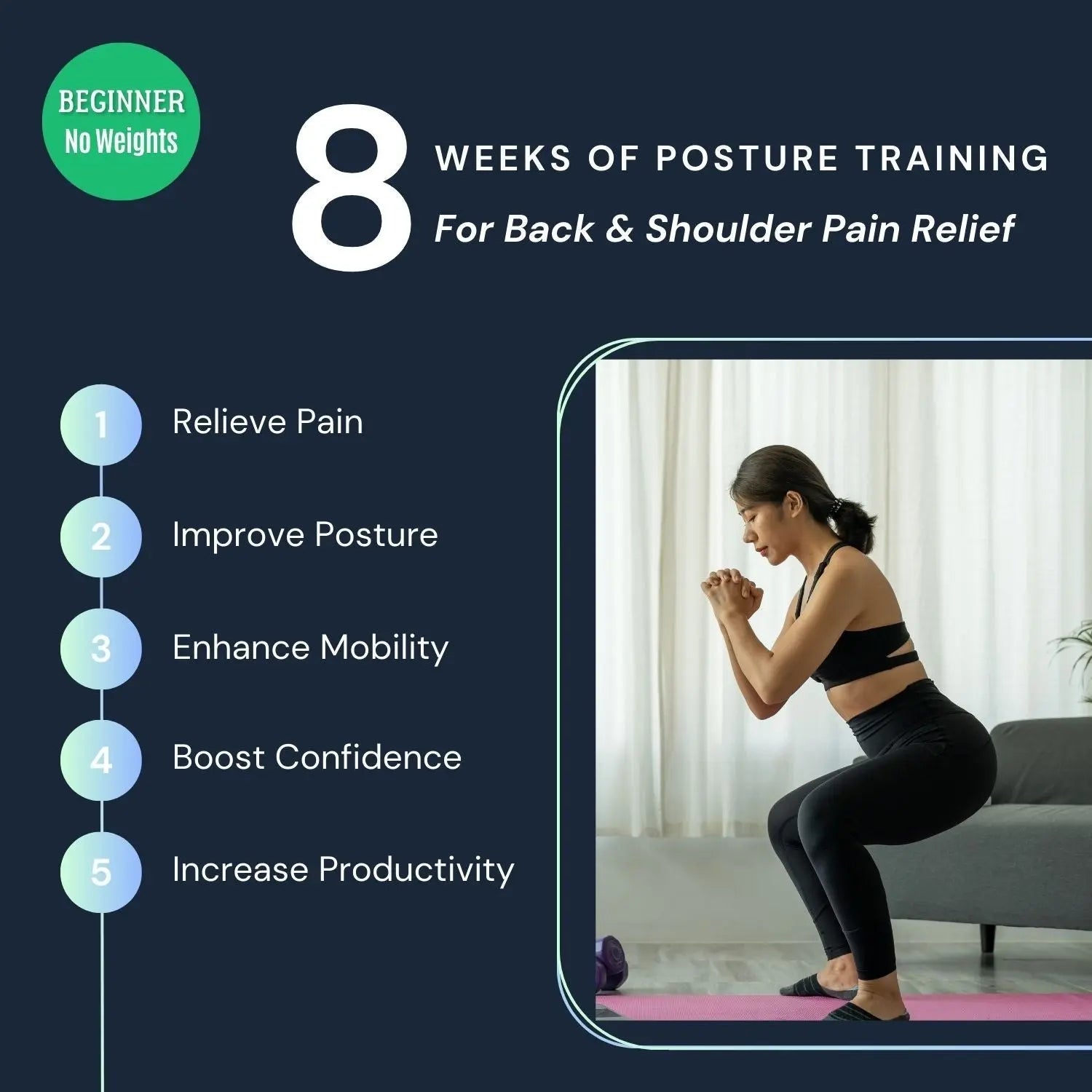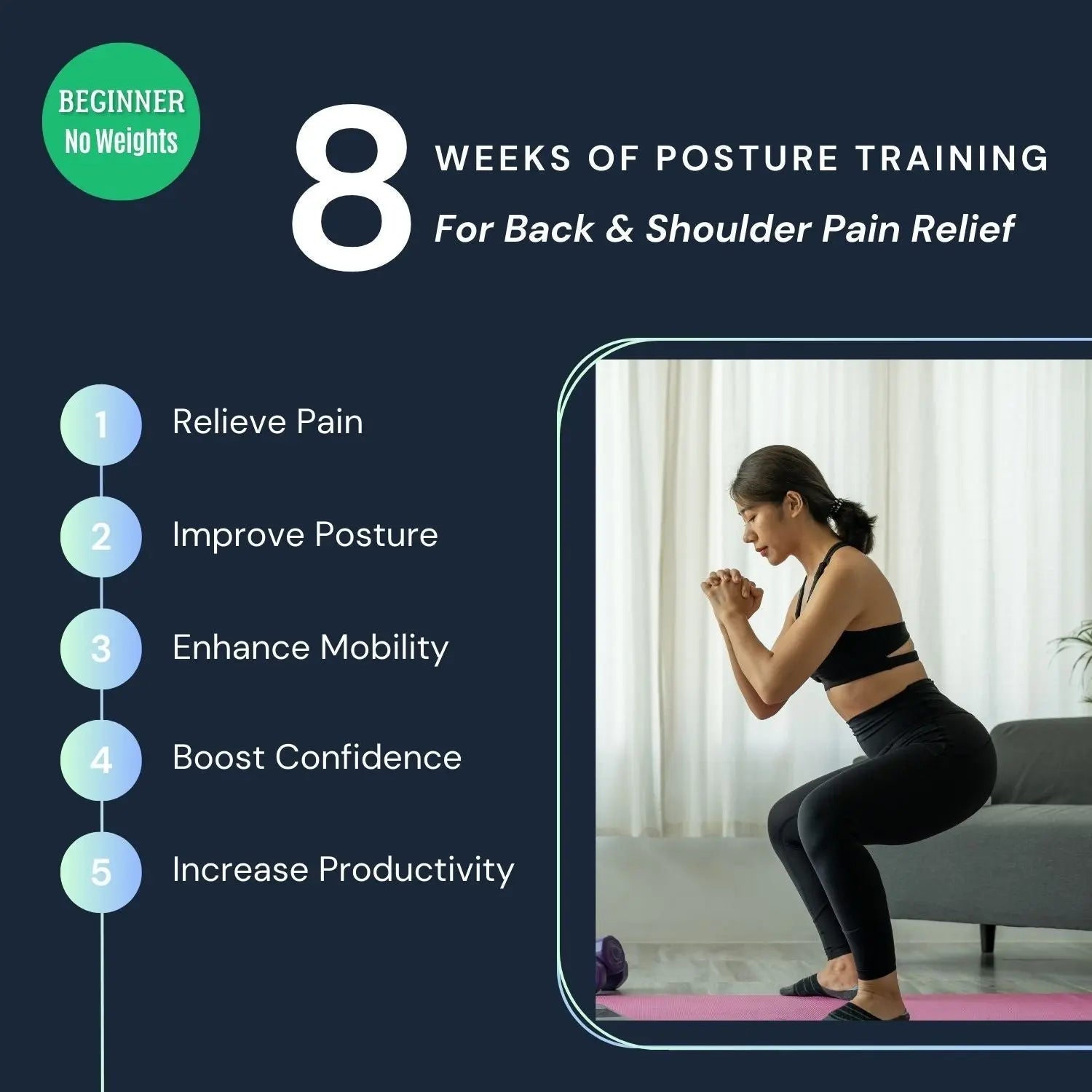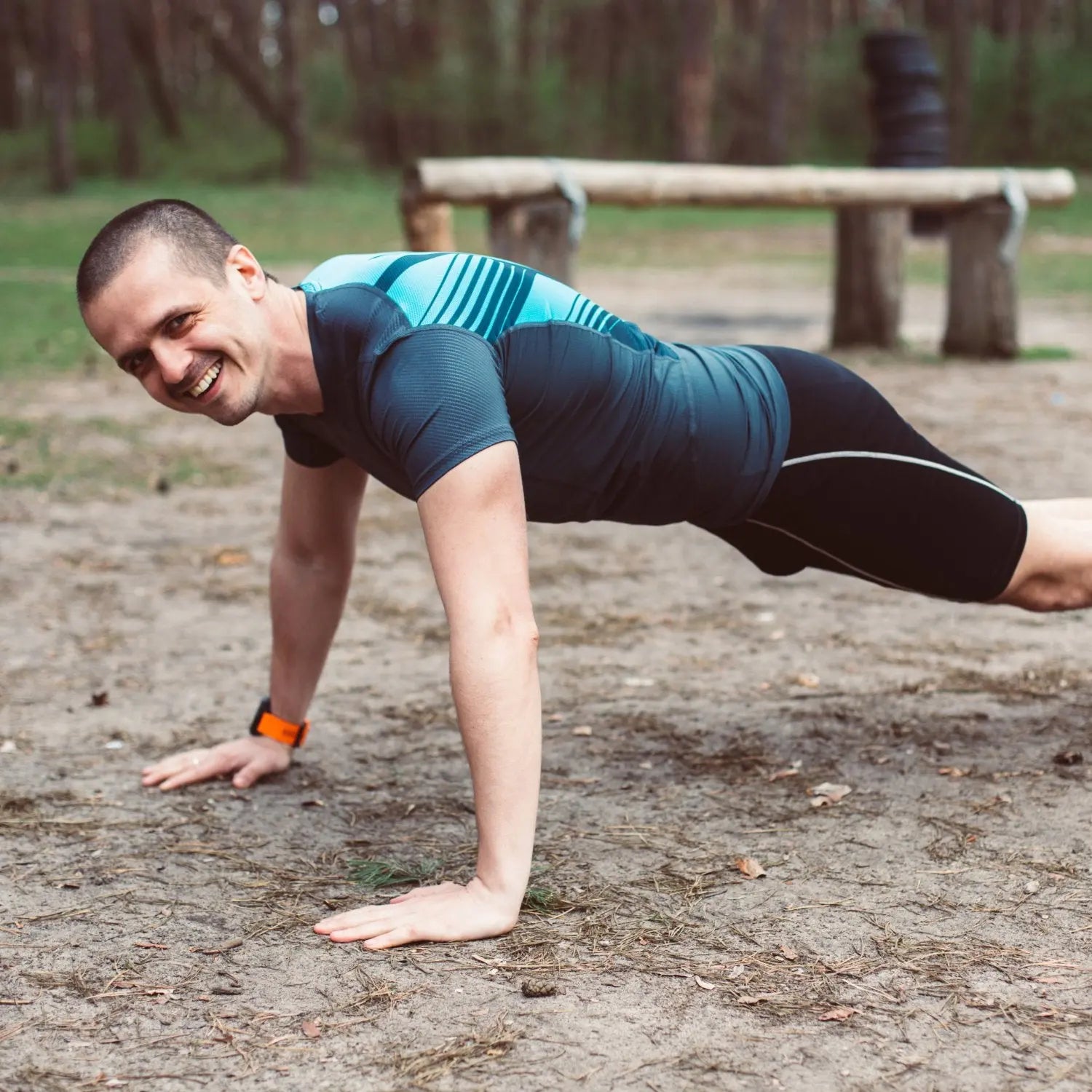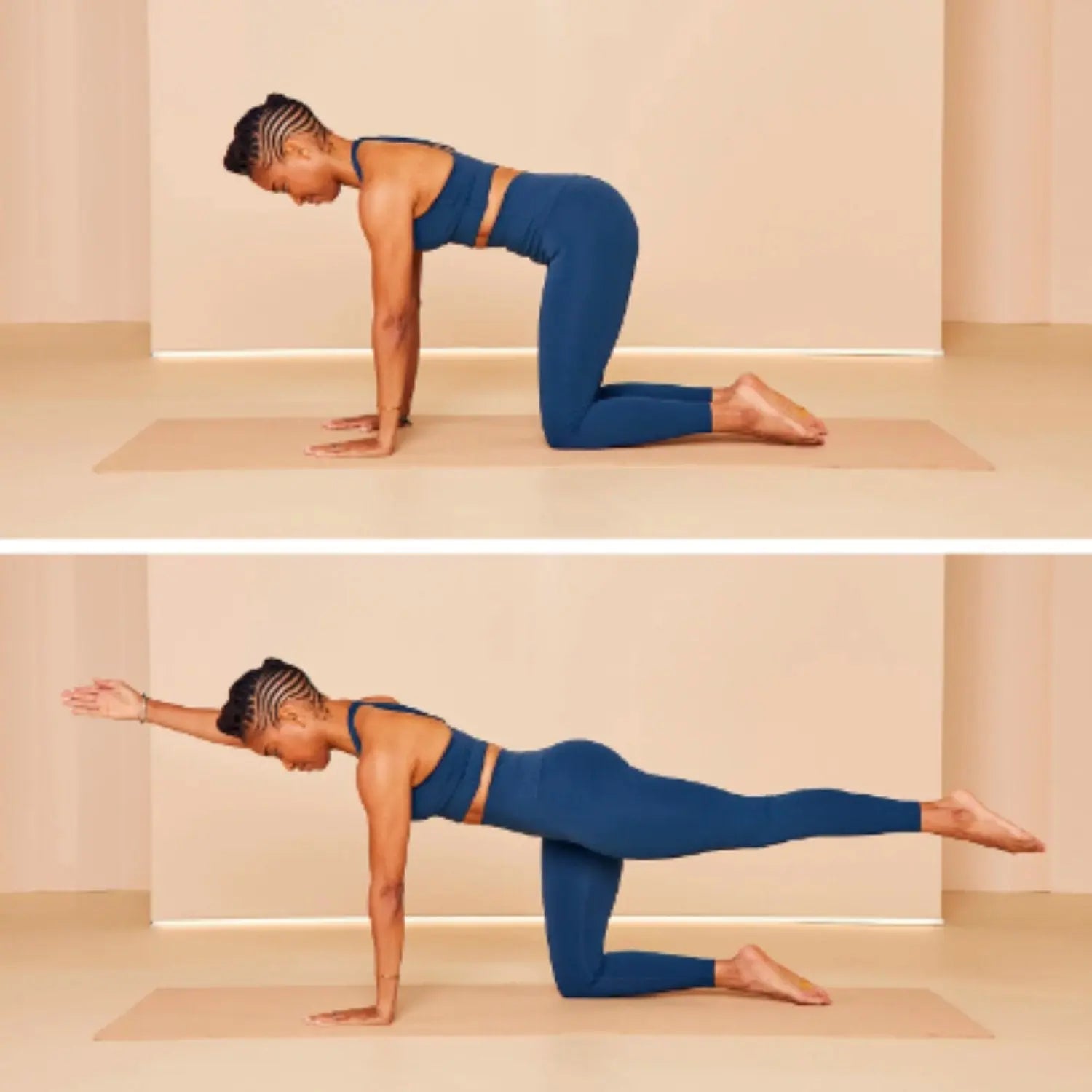Long Term Effects Of Bad Posture | Take Steps Now!

Have you ever wondered about the impact of bad posture on overall health? Something so easily corrected as bad posture can have surprising and widespread physical effects like back pain, neck pain, and vertebral malalignment. While incorrect posture during daily tasks might seem harmless, it can have significant health impacts over time.
This raises the question: Is there any way to prevent and correct long term effects of bad posture? Fortunately, the answer is a resounding “Yes!” Simple interventions including sitting upright, standing, avoiding slouching, and daily exercise routines are just a few of the effective ways of preventing poor posture from impacting your overall health.
Continue reading this comprehensive guide to learn about the long-term effects of poor posture, as well as how you can use simple interventions to limit the impacts of poor posture.
6 Long-term Effects of Poor Posture

Poor posture might seem like a minor issue, but over time it can have serious consequences, significantly impacting health and well-being. The following are 6 such consequences of bad posture over time.
1. Back and Neck Pain
Anatomically speaking, our spine is oriented like a well-balanced stack of building blocks. Slouching and hunching over disrupts proper spinal alignment, leading to strain on the muscles that surround and support the spine.
Over time, the muscular strain caused by malalignment of the spine can lead to persistent, chronic pain, which has far reaching impacts on physical and mental health.
2. Spinal Malalignment
The spine serves us in several ways, functioning as structural support, as well as surrounding and protecting crucial elements of the central and peripheral nervous system, including the spinal cord and its peripheral nerve roots.
Prolonged poor posture interrupts spinal alignment, which in turn can create pressure on these nerve roots, leading to possibly severe pain.
3. Reduced Lung Capacity
The idea that poor posture impacts lung capacity is intuitive for most, especially if you’ve ever noticed that it’s more difficult to breathe when slouched over.
This is because slumping forward limits lung expansion, resulting in reduced oxygenation, called hypoxia. Prolonged hypoxia is linked to several diseases and can lead to chronic fatigue as the body struggles to perform with less oxygen.
4. Digestive Problems
Similar to how poor posture affects lung expansion, it also limits space for other internal organs including the esophagus, stomach, and intestines. Thus, poor posture can impact digestion, and it has been linked to problems like acid reflux, constipation, and bloating.
Truly, maintaining good posture isn't merely about appearances – it’s about keeping your body in a natural state, also called homeostasis.
5. Poor Circulation
Another physiologic effect of poor posture is poor blood circulation. Just as slouching impacts internal organ function, it can restrict proper blood circulation, resulting in numbness, tingling, and poor perfusion of internal organs.
Adequate circulation is vital to ensuring your entire body receives its needed nourishment, including oxygen, proteins, and vitamins needed for day to day cellular function.
6. Negative Impact on Mood and Confidence
Have you ever noticed how much you can learn from someone’s body language? Indeed, body language is an immediate communication of more than just words. Slouching can convey a lack of confidence, send unintended social signals, and affect mood. Correct posture benefits the mind-body connection, as upright posture communicates to your brain that you’re feeling confident.
On the other hand, poor posture can contribute to feelings of lethargy and self-doubt. Further, how you carry yourself influences not just how others perceive you, but how you perceive yourself.
Preventing and Correcting Bad Posture
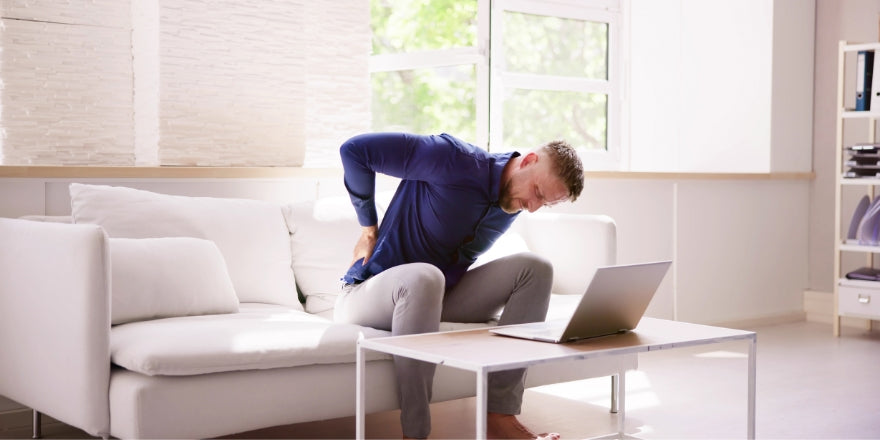
“Good posture can be achieved by maintaining good spinal alignment during activities of daily living,” according to Wendy Katzman, a physical therapist and former professor at the University of California San Francisco Department of Physical Therapy and Rehabilitation Science.
The following are some tips and exercises to prevent and correct poor posture, which, as shown above, is crucial for keeping overall good health.
1. Sit Up Straight and Avoid Slouching

As mentioned before, the spine acts as a sturdy pillar providing structural support and protection of vital components of the nervous system. To maintain spinal integrity, start by sitting up straight, keeping your shoulders relaxed, with your back against a chair.
In general, try to stay mindful of when you start to slouch or hunch forward, correcting posture whenever you’ve noticed any deviation from proper spinal alignment. This is key to keeping any unnecessary strain on your back muscles and disrupting the natural spinal curvature.
2. Regular Exercise and Stretching
In order to keep good posture, it’s important to exercise and strengthen the muscles responsible for maintaining posture. Engage in activities that strengthen your core, back, and neck muscles, including planks, bridges, and back extensions.
Additionally, stretching is a critical component of any exercise routine because it improves flexibility. Stretching helps to prevent muscle tightness, improving the ease of maintaining an upright seated and standing position.
3. Ergonomic Furniture and Proper Workstation Setup
The workspace can be seen as the center for good posture. For example, it’s important to invest in an ergonomic chair that supports natural spinal alignment, one that will provide lumbar support while also allowing your feet to position flat on the floor.
Further, you can ensure your computer screen is at eye level to prevent unnecessary strain on your neck. Small adjustments to workspace can dramatically improve the ease at which proper posture is kept throughout the workday.
4. Exercises to Correct Bad Posture
1. Chin Tucks
Chin tucks are a simple yet effective exercise for correcting poor posture. In essence, drawing the chin toward the chest strengthens neck muscles, alleviates tension, and promotes a neutral head position.
Regular practice of chin tucks can improve posture, reduce strain on the neck, and further support proper spinal alignment.
- Step 01: Sit or stand up straight.
- Step 02: Gently tuck your chin towards your chest without tilting your head.
- Step 03: Hold for a few seconds, then relax.
- Step 04: Repeat several times to alleviate neck strain.
2. Shoulder Blade Squeezes
One way to strengthen the back muscles that contribute to posture is shoulder blade squeezes. These maneuvers strengthen upper back muscles, including trapezius, teres minor, and teres major, by actively rotating the shoulder blades inward, which better aligns the spine and leads to proper posture.
Regular practice of shoulder blade squeezes can counteract slouch, which in turn prevents tension in the neck and shoulders, all while bringing you back into natural spinal alignment.
- Step 01: Sit or stand with a straight back.
- Step 02: Squeeze your shoulder blades together.
- Step 03: Hold for a few seconds, then release.
- Step 04: Repeat to strengthen your upper back muscles.
3. Cat-Cow Stretch
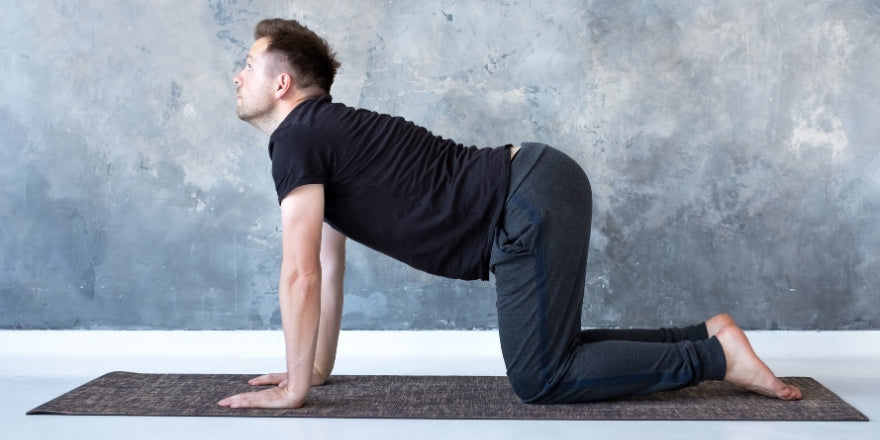
The cat-cow stretch is a classic yoga movement that alternates between arching and dipping the spine, which enhances flexibility. Further, these movements relieve lower back tension and foster a more neutral curvature in the back when again sitting or standing.
- Step 01: Get on your hands and knees, forming a tabletop position.
- Step 02: Arch your back upward (like a cat) and hold briefly.
- Step 03: Then, dip your back down (like a cow) and hold again.
- Step 04: Repeat to improve flexibility in your spine.
4. Seated Spinal Twist
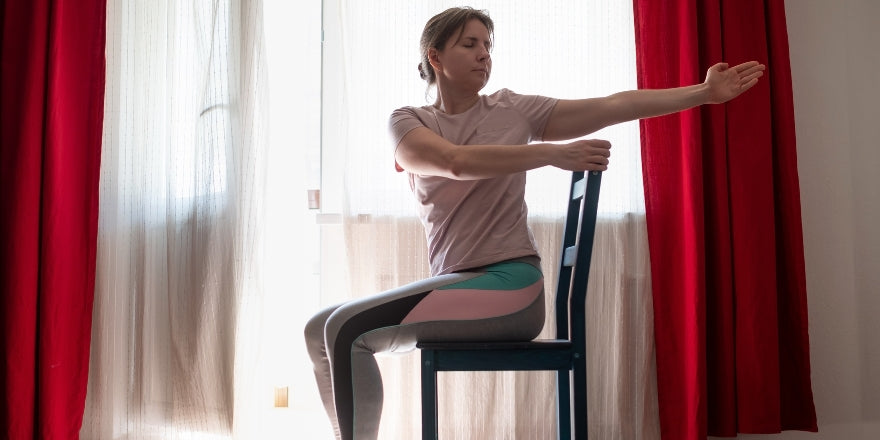
Yet another classic yoga move is the spinal twist, but this can be done while seated as a valuable exercise to prevent weak posture. This stretch improves spinal mobility and flexibility by gently rotating the upper body.
The move targets the lower back muscles, which through strengthening and stretching promotes a more natural spinal alignment.
- Step 01: Sit on a chair with your feet flat on the ground.
- Step 02: Twist your upper body to one side, placing your hand on the back of the chair.
- Step 03: Hold for a few seconds, feeling the stretch.
- Step 04: Repeat on the other side to enhance spinal mobility.
Frequently Asked Questions (FAQs)
How long can it take to fix bad posture?
It can take up to 3 – 4 weeks to notice a visible improvement in posture, though it might be possible to see sooner improvement if the above exercises and advice are used routinely. With regular exercises and stretching, posture issues can be resolved within 3 – 4 months.
Is bad posture be irreversible?
No, bad posture is far from irreversible, as are the chronic pain and physiologic dysfunction that might be caused by poor posture. The above exercise are so important because they will start to improve your posture awareness, which allows you to more frequently make small but necessary adjustments.
By making effort to fix your posture anytime, the posture awareness you’ve developed over time will become an automatic habit, leading to consistently natural posturing.
Why are my shoulders so curved?
Prolonged periods of poor posture can lead to muscle strain and tension that fixes shoulders in an unnatural position. Several of the above exercises, particularly the shoulder blade squeezes, are highly effective in correcting improper shoulder positioning.
Can good posture change your life?
We’ve already shown how connected good posture is to overall health. Any effort put into improving posture with regular exercises and stretching will go a long way to improving health and changing your life – for the better!
Wrapping Up
Poor posture is extraordinarily common, and its effects on overall health can’t be overstated. Fortunately, the simple interventions covered in this article can make a huge difference in correcting poor posture and improving mood, fitness, and well-being.
However, if these initial interventions fail to improve posture, it is important to seek further medical care, like from your Primary Care Physician, Physiatrists, and Massage Therapists.


























